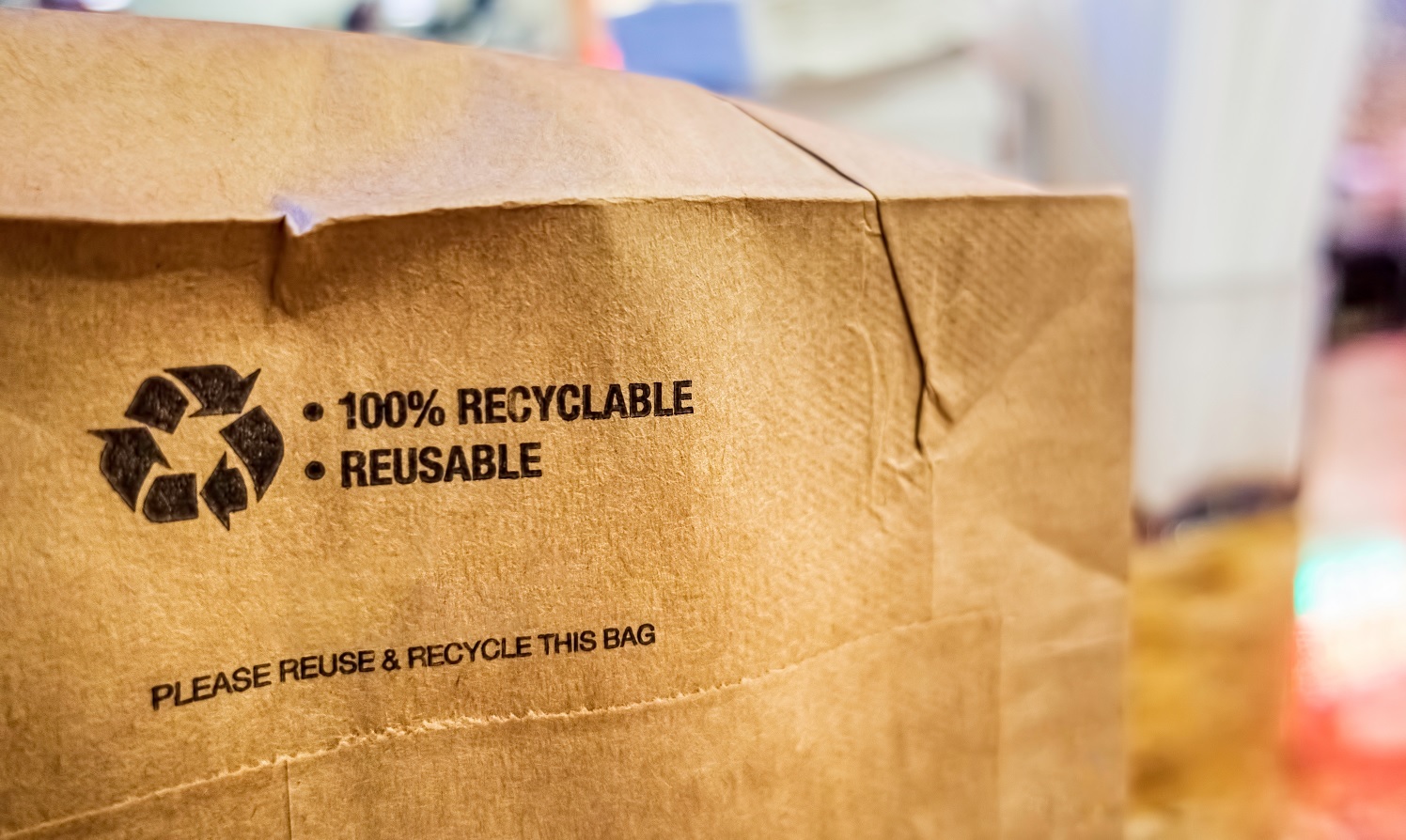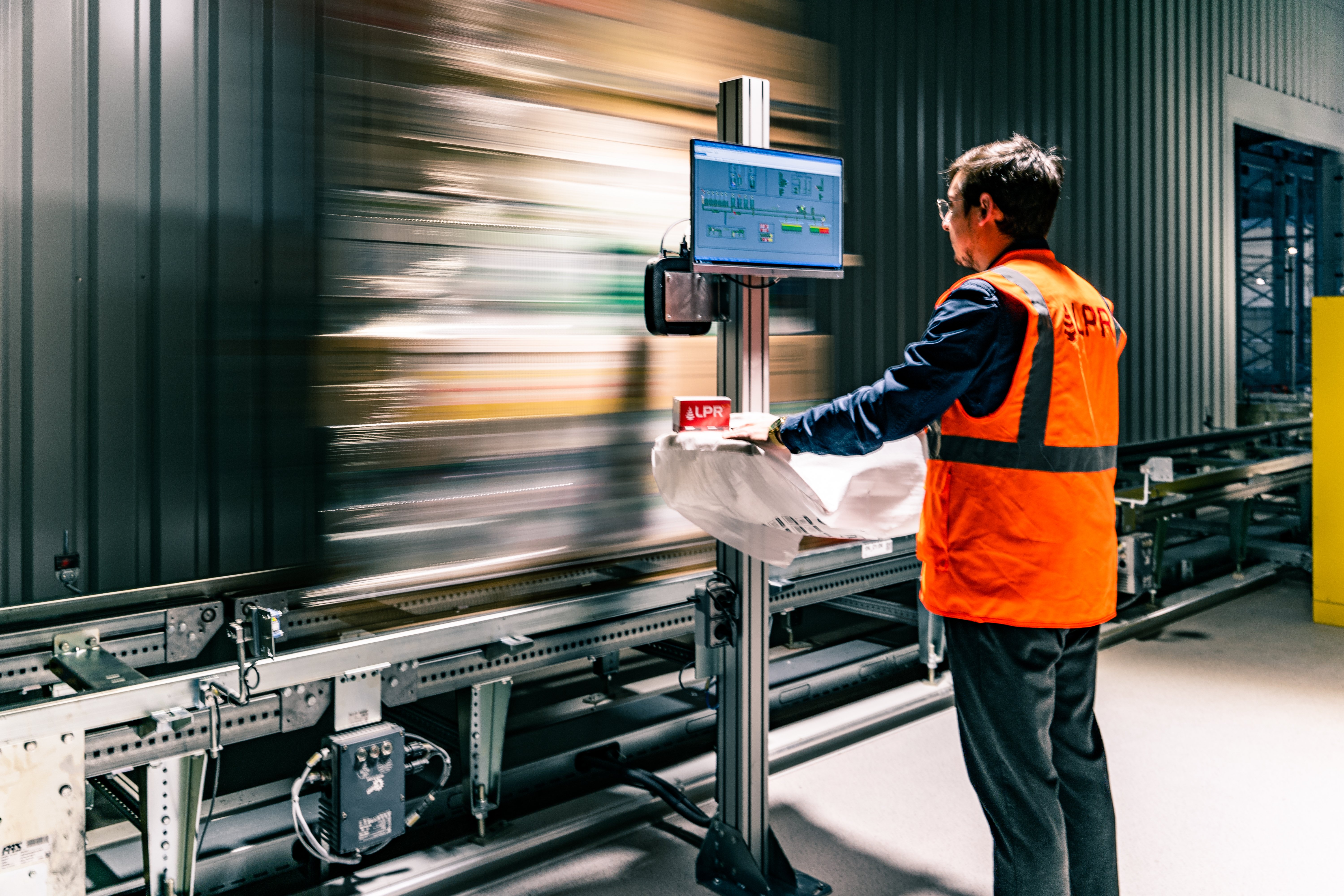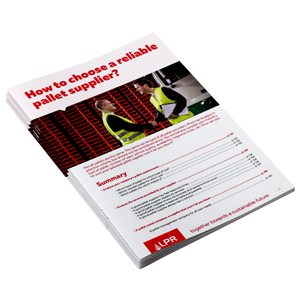In a society driven by immediacy and confronted with escalating consumer expectations for performance and accessibility, the Fast-Moving Consumer Goods (FMCG) industry faces constant pressure to remain competitive in the market.
This challenge is compounded by an equally significant imperative: environmental preservation.
Integrating environmental sustainability into their strategies becomes an additional concern, requiring FMCG companies to rethink their manufacturing processes without compromising the quality of their production and distribution.
Pallet pooling is a solution that can tackle this challenge head-on, allowing the FMCG industry to enhance and optimise supply chain performance while adopting a more environmentally conscious approach.
In this article, we will explore the multitude of benefits that pallet pooling brings to the FMCG industry.
Menu:
2 | The different benefits of pallet pooling
1. What is pallet pooling?
Pallets have been used for many years as a reliable means of shipping and storing goods across various industries. They offer a secure and efficient method of transporting different products without causing any damage.
Pallets are available in a variety of materials such as wood, metal, or plastic, ensuring a versatility that caters to the specific needs and requirements of diverse goods.
Despite the availability of various pallet options, many industries still predominantly use one of two types:
1.1. The problem of single-use pallets
Single-use pallets are employed for a single instance of transporting and delivering goods. While they may serve as a practical solution in specific urgent or unforeseen circumstances, they contribute to waste generation and do not meet the required quality standards for accommodating the supply chains of all manufacturers.
In contrast, pallet pooling presents a sustainable alternative to single-use pallets, offering a comprehensive solution.
1.2. So-called exchange pallets
Pallet exchange is a common logistical practice that takes place during the delivery process. The concept is straightforward: when the carrier delivers the goods to the designated location, they also collect empty pallets in exchange for usable ones.
While this method is environmentally responsible, it does have its limitations. Successful pallet exchange relies on perfect coordination between the two distributors and an availability of pallets in good condition for the exchange. Moreover, ensuring the maintenance and upkeep of the exchange pallet fleet presents a challenge for all parties involved.
1.3. A definition of pallet pooling
Pallet pooling is an efficient pallet rental and management system that provides manufacturers with the option to rent pallets rather than purchasing them outright. In this system, a dedicated pallet rental company takes responsibility for supplying the required pallets to manufacturers and retrieving them at the end of the distribution chain, typically upon arrival at distributors' locations. The lessor also assumes the responsibility of maintaining the pallets.
By embracing pallet pooling, FMCG manufacturers and distributors can benefit from a fully outsourced service that allows them to redirect their attention towards tasks with higher added value. They can focus on core operations while enjoying the convenience of high-quality pallets provided by the rental company.
2. The different benefits of pallet pooling for your industry
As you have seen, pallet pooling is a system firmly rooted in the principles of the circular economy. It serves as an instrumental tool for ensuring the productivity of supply chains within the FMCG industry while simultaneously reducing their environmental footprint.
2.1. A considerable economic advantage
Pallet rental is an economical alternative to buying pallets which generate hidden management costs over the long term:
-
transportation costs: at the end of the supply chain, the pallets are collected by the pooling service provider. This eliminates the need for unnecessary trips and the mobilisation of carriers to transport empty pallets back to your warehouses.
-
storage costs: say goodbye to dormant pallets taking up valuable storage space in your warehouses. With pallet pooling, there's no need to store excess pallets anymore. Whenever you require them, the pallets are promptly delivered to your warehouse, and once your products are distributed, they are efficiently collected from your distributors.
-
maintenance costs: when pallets become damaged within the pallet pooling system, they are responsibly recycled. This relieves you from the concerns of maintenance and managing the end-of-life process for your pallets. The pooling service provider takes care of recycling damaged pallets, ensuring that they are properly handled and repurposed.
Note:
Repairing a pallet costs half the amount of manufacturing a new pallet. Using a reusable pallet is therefore much more economical than other options available on the market today.
2.2. Better performance of your supply chain
Pallet pooling offers the potential to streamline various stages of your production chain.
Within the pooling system, the available pallet formats are standardised, enabling seamless integration with your automated handling, storage, and production systems.
As a result:
-
you avoid line stoppages and the economic losses they entail.
-
you ensure the safety of your handling and storage systems.
Furthermore, LPR - La Palette Rouge offers our valued customers the convenience of MyLPR, a centralised interface for managing their pallet requirements and streamlining their logistics. Through this user-friendly platform, customers can effortlessly place orders for pallets, specifying the desired quantity, format, and delivery details. They can also access a comprehensive overview of all pallet movements and conveniently retrieve their invoices.
With pallet pooling, your service provider handles all the necessary tasks, allowing you to focus on your core objectives: producing exceptional products to meet the needs and expectations of your customers.
2.3. Environmentally friendly reusable packaging
By adopting pallet pooling, your supplier will take charge of collecting and reusing the pallets. If a pallet becomes too damaged to be repaired after multiple uses, it will be responsibly recycled.
This approach ensures that the packaging is both reusable and recyclable, effectively reducing resource waste and minimising the generation of additional waste.
At LPR, our wooden pallets have a minimum lifespan of 5 years. When they are no longer repairable, they are transformed into wood pellets. These pellets serve as an energy source to heat buildings, thereby giving the wood a valuable second life as an energy resource.
Furthermore, even prior to the manufacturing stage, our red pallets are produced with a strong commitment to environmental protection and the preservation of ecosystems.
The selection of wood for our pallets adheres to an internally established sourcing policy, ensuring an ethical and sustainable supply chain. As evidence of our dedication, we have held the PEFC Chain of Custody certification since 2010.
This certification verifies that all our wooden pallets are crafted using wood sourced from forests managed in a sustainable manner, aligning with the principles of responsible forest management and biodiversity preservation.
To gain a better understanding of the concept: explore what PEFC certification entails.

2.4. Greater attractiveness
By adopting a supply chain approach that is more environmentally friendly, your company can enhance its brand image and attract more customers.
In today's world, where environmental concerns are increasingly prevalent, customers are becoming more conscious and responsive to sustainable practices. When you provide tangible evidence of your commitment to reducing greenhouse gas emissions and waste, you can earn their approval and trust.
It is crucial, however, to ensure that your actions align with your claims and do not amount to greenwashing. Greenwashing refers to misleading or exaggerated environmental claims that may undermine your credibility.
Consider this example: If a company claims to be committed to sustainable development by planting trees in partnership with an association to support reforestation efforts, but at the same time invests heavily in fossil fuels, their commitment may be perceived as contradictory and lacking integrity.
In the context of a Green Supply Chain Management approach, integrating pallet pooling can significantly enhance the attractiveness of your industry.
By embracing a robust sustainable development policy, you can make your company more appealing to both current and potential customers. A company that actively strives to minimise its environmental footprint is more likely to be chosen by customers who prioritise sustainability.
By transparently showcasing your commitments and actions for the environment, you can establish trust and credibility with environmentally conscious customers. Pallet pooling, being an integral part of the circular economy, aligns well with sustainable development goals, making it an excellent choice to demonstrate your dedication to environmental responsibility.
Conclusion
Pallet pooling is a beneficial solution for the FMCG industry that can allow it to remain competitive while respecting environmental requirements.
Pallet pooling offers numerous benefits:
-
economical, compared to the purchase of pallets, particularly in terms of transport, storage, and maintenance costs.
-
materials, it helps to improve the flexibility of the supply chain by allowing companies to adapt their demand for pallets according to their fluctuating needs.
-
ecological, wooden pallets are returnable, reusable, and recyclable packaging
In summary, pallet pooling is a solution that addresses the challenges of sustainable development by combining operational efficiency and environmental responsibility for FMCG industries.
Are you interested in joining a pallet pool?
Our teams are available to assist you and ensure a smooth transition towards making the change. Contact us today!



